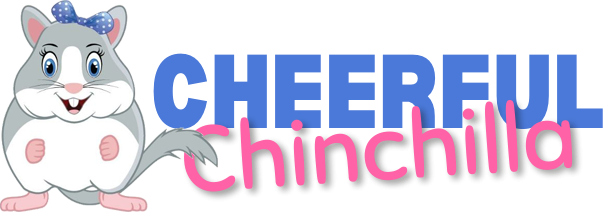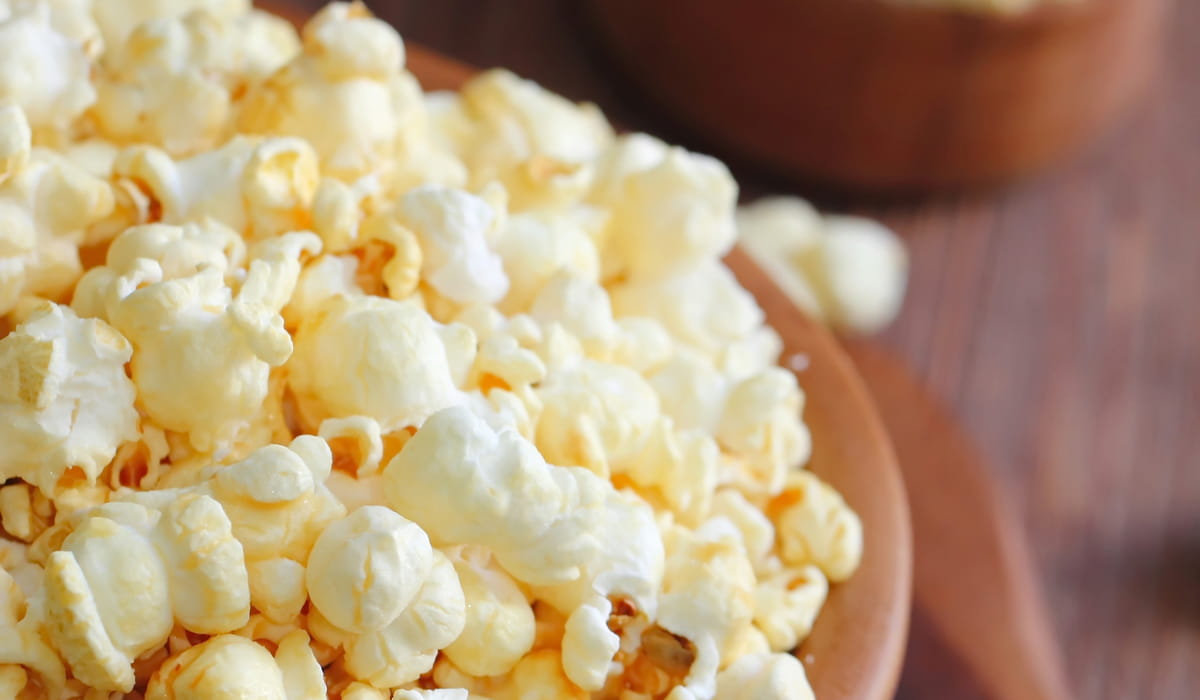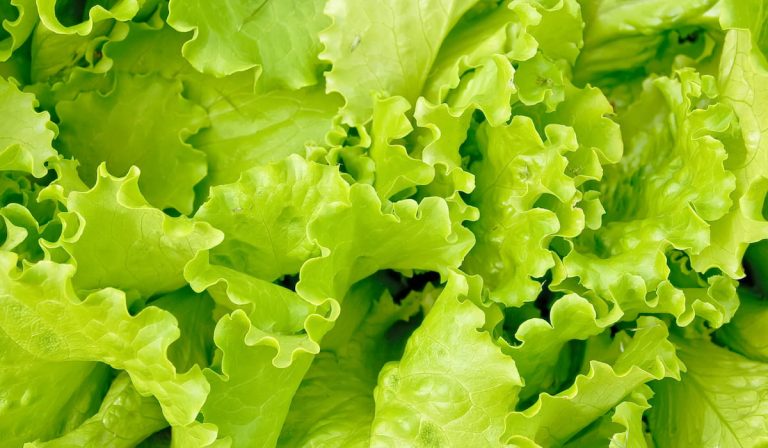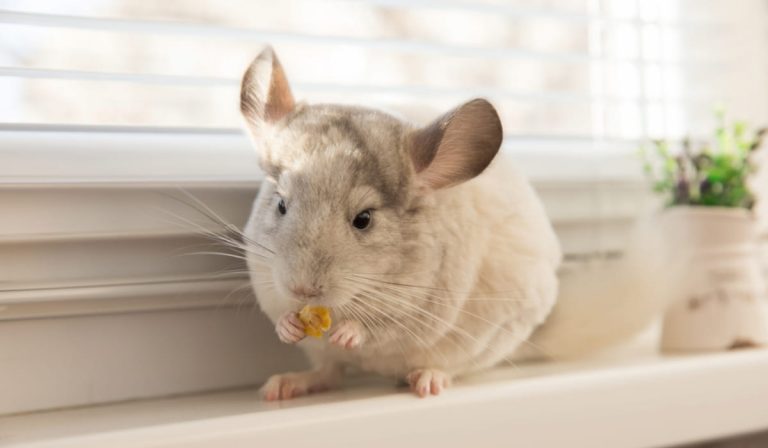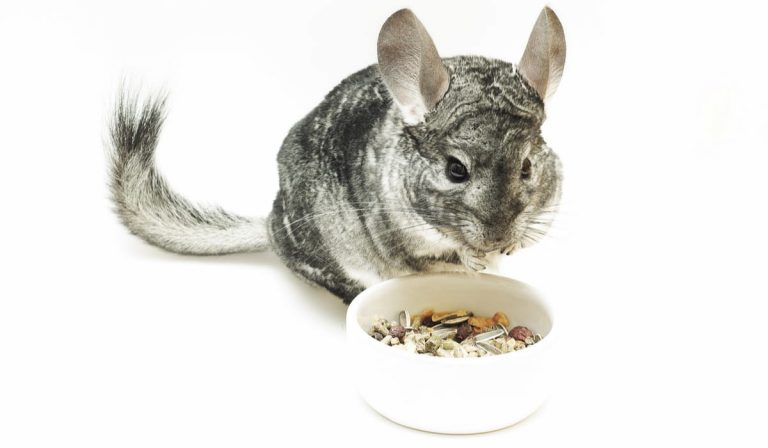Can Chinchillas Eat Popcorn?
Chinchillas are often described as sensitive and delicate, and their digestive system is no different. For this reason, chinchillas cannot eat everything you may think they can.
Popcorn is a favorite snack for humans, and as it can be prepared in a healthier manner, you may wonder if popcorn is a suitable treat for your chinchilla.
Can chinchillas eat popcorn?
Popcorn is one of those foods that lie just at the borderline of being safe and not.
Some pet parents notice no change in their chinchillas’ health after eating popcorn, while for some it becomes deadly. Avoiding such risky foods is always the best option.
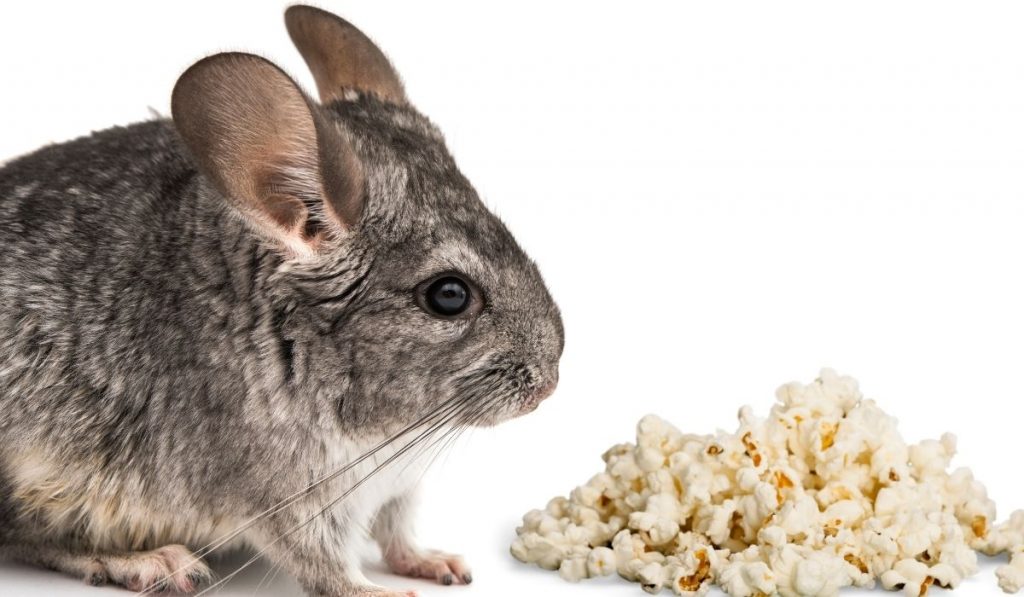
Is Popcorn Poisonous?
Everything is not for everyone. Similarly, some foods would be the favorite treats of other rodents but not a good option for chinchillas.
To understand why chinchillas should avoid popcorn, we need to keep a few things in mind.
Firstly, chinchillas have a very sensitive digestive system and cannot afford to eat food extremely different from what they would eat in a natural habitat.
Naturally, they are more inclined towards grasses, stems, and leaves. Corn is not what they would eat in their natural habitat.
Secondly, giving cooked food to these rodents would never be a good option. For that reason, avoiding popcorn is always the safest option.
Popcorn is not in itself poisonous, it’s just that chinchillas are not able to digest it.
What Does Popcorn Contain?
Popcorn contains a lot of nutrients but not those that a chinchilla requires.
For a chinchilla, a healthy meal must contain a lot of fiber. Fiber is the main component of their diet.
On the other hand, popcorn does not have enough fiber. The same is the case with higher requirements of water.
Let’s have a look at what popcorn contains and what a chinchilla needs.
Nutrients in Popcorn:
- Carbohydrates: The highest amount of any nutrient popcorn contains is that of carbohydrates. It makes up around 78g per 100 g of popcorn, much higher than a chinchilla requires.
- Fats: Fats make up almost 5g of 100g of popcorn.
- Proteins: Every 100g of popcorn only contains 13g of proteins.
- Fiber: Fiber and proteins have almost the same levels found in popcorn.
- Water: The water content of popcorn is very low. Around 3g per 100g of popcorn.
Requirement of Chinchillas:
- Carbohydrates: Chinchillas only need around 35g of carbs, almost half the amount popcorn contains.
- Fats: They need only 2-4g of fats.
- Proteins: Chinchillas require a good amount of proteins, around 16-20g per 100 gm of feed.
- Fiber: A fiber-rich diet is always the best for chinchillas, around 30g per 100g of feed.
- Water: Just like fiber, chinchillas require a water-rich diet. They must intake 10-15g of water through their diet alone.
These drastic differences in the requirements and nutrients found in popcorn make it not a good option for chinchillas.
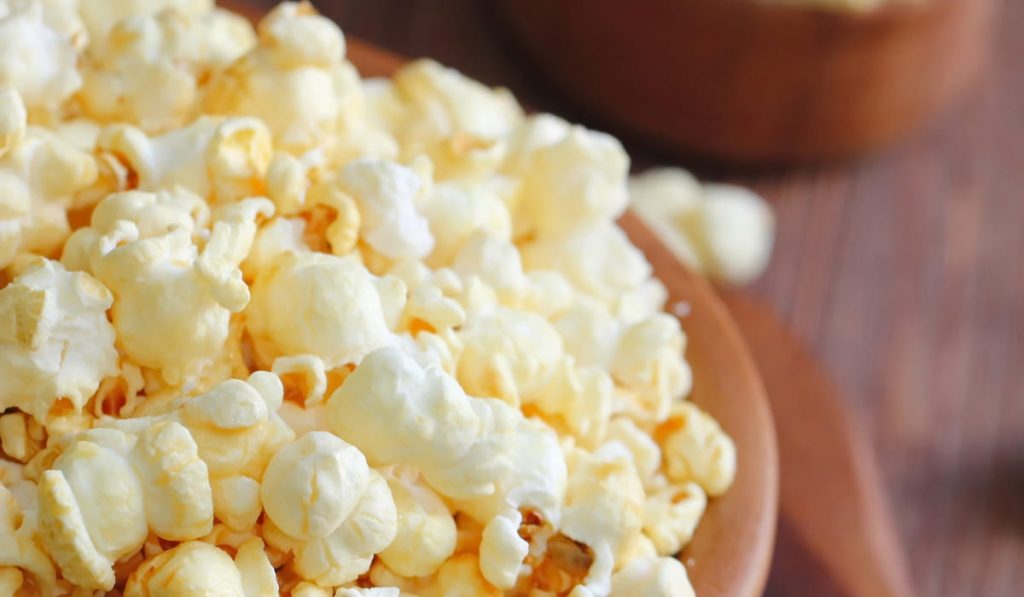
What If Your Chinchilla Mistakenly Eats Popcorn?
As a pet parent, you can avoid exposing your pet to unhealthy or harmful things.
But what happens if your chinchilla does encounter popcorn? Do not worry! It is likely a chinchilla would avoid eating popcorn, as it would do in a natural habitat.
But if it mistakenly has a bite or so, it can affect its digestive system. Chinchillas have a very sensitive digestive system and are prone to bloating and diarrhea.
The same happens when they eat popcorn. It can affect their gut, causing gas and other digestive issues.
For some chinchillas, it does not create much of a scene. For others, it may take some days to recover naturally. If its health keeps deteriorating, do consult your vet immediately, as severe cases of intolerance can be fatal.
Other Food Options for Chinchillas
Why go for risky food options when you have many safer ones available? There is quite a long list of foods your chinchilla would love to have.
Let’s have a look at a few of them:
- Oats: Chinchillas love oats. This high fiber treat is the best for your chinchilla.
- Fresh Apples: Nicely diced fresh green apples are a very good source of nutrients plus taste.
- Dry Fruits and Nuts: Chinchillas love to eat dry fruits. These include dried cranberries, grapes, apples, etc. Peanuts are one of the best treats you can surprise your chinchilla with.
- Dried Leaves and Flowers: These small rodents love nibbling dried leaves, especially olive leaves. Dried flowers are also a good option to feed your chinchilla.
- Hay: This is a must-have when feeding a chinchilla. Being herbivores, chinchillas are fond of eating hay and herbs.
- Fresh Flowers and Fruits: You can feed fresh dandelion, nasturtium, and red clover flowers to your chinchilla. Fresh fruits should make up a good part of their diet.
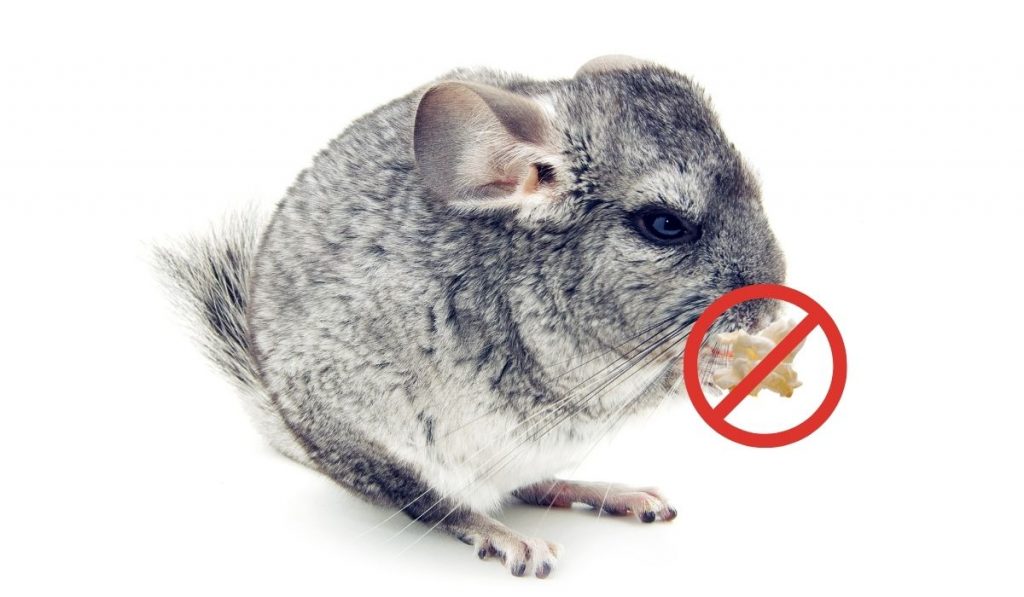
Things to Remember
No matter what are you feeding to your chinchilla, there are some guidelines you always need to follow. Many people try to treat their chinchillas as any other rodent, which can be harmful.
Chinchillas are a very sensitive species and need to be cared for in special ways:
- Moderation: Chinchillas are naturally not one of the voracious eaters, so it will be difficult to overfeed them. Still, you should always remember that moderation is the key to good health. Never try to constantly feed your pet chinchilla. Every food is healthy when eaten in moderation. Excess of anything is bad.
- Food Hygiene: Hygiene is the most important thing. Keeping in view the sensitive digestive system of chinchillas, they must not be fed any rotten or unwashed food or fruits. For maintaining good health, clean and fresh food is very important.
- Consistent Diet: There must be no sudden changes in the diet. Keep the diet consistent and healthy. Suddenly introducing something new or deducting a routine food item can affect a chinchillas’ health. Consistency is the key to healthy living.
- Small Portion Size: Feeding finely diced fruits in a small portion is also an important factor in maintaining good health. Giving very large-sized fruits or any feed in large proportion is never a good option. Always keep the portion size small.
Hopefully, you find this post informative. Stay tuned for many more amazing and informative articles.
